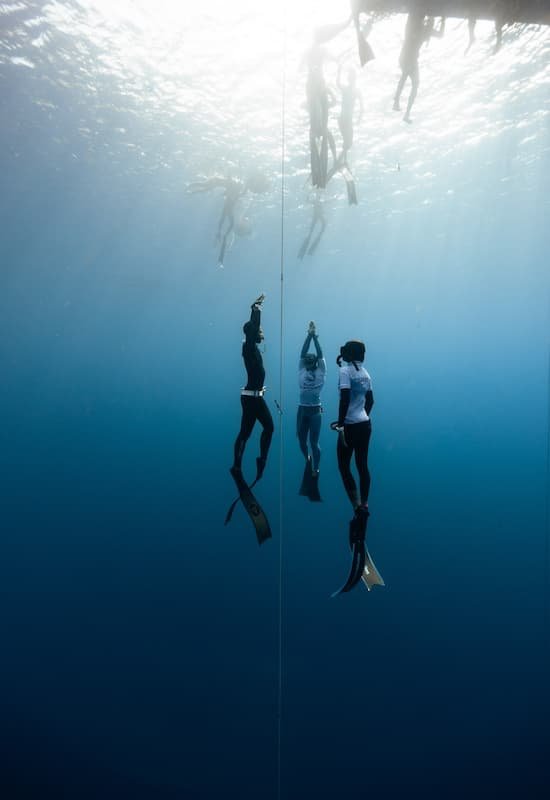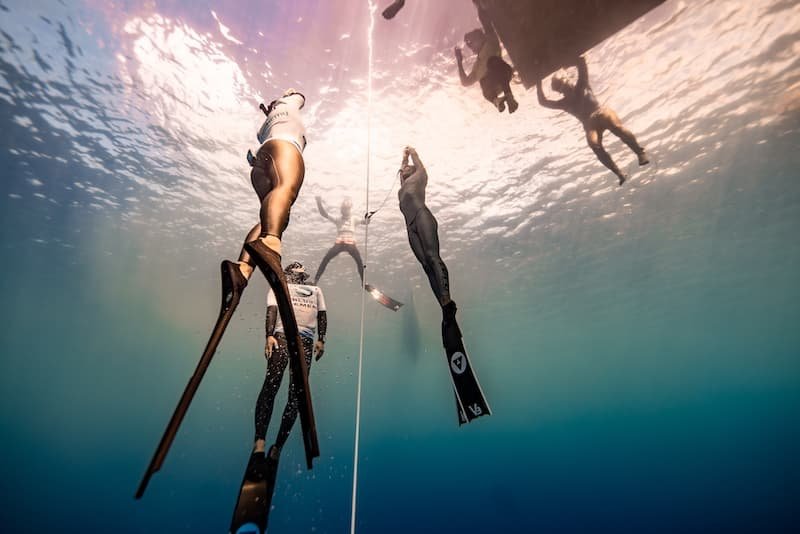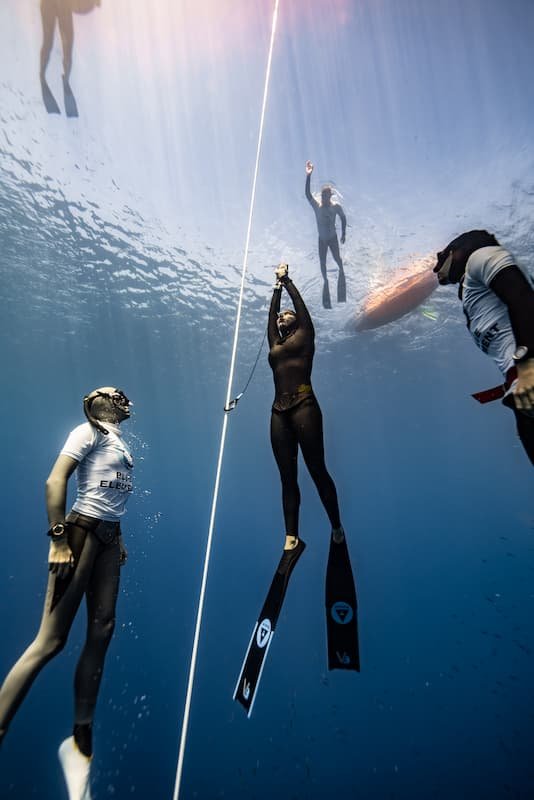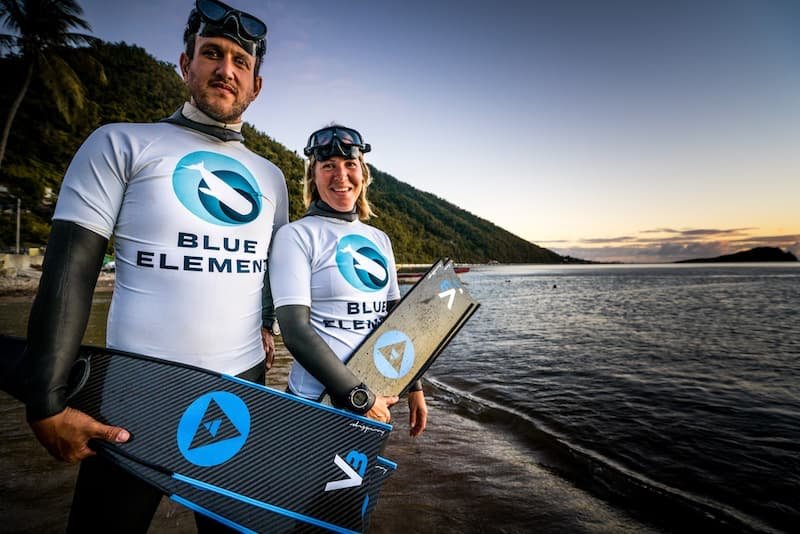
 Roni Essex
Freediver, Spearo, Creator
Roni Essex
Freediver, Spearo, Creator

 Roni Essex
Freediver, Spearo, Creator
Roni Essex
Freediver, Spearo, Creator
As more people discover the joys of freediving, many find themselves considering taking the next step: entering a freediving competition. For those on the fence, here are five compelling reasons to take the plunge.
One of the most profound reasons to enter a freediving competition is the opportunity to push your personal boundaries. Competitive freediving challenges you to go beyond your comfort zone, both mentally and physically. The structured nature of a competition provides a safe environment to test your limits under the watchful eyes of experienced professionals.
Many freedivers find that the pressures of competition help them achieve depths and durations they never thought possible. The drive to perform at your best in a competitive setting can unlock hidden potential and lead to remarkable personal achievements. Moreover, the sense of accomplishment that comes from surpassing your previous records is unparalleled, instilling a deep sense of confidence and satisfaction.

Freediving competitions are not just about individual achievement; they are also about community. These events bring together like-minded individuals from around the world, all united by their love for the ocean and freediving. The camaraderie and mutual support among competitors are some of the most rewarding aspects of participating in a competition.
In this close-knit community, divers share tips, experiences, and encouragement. The friendships formed at competitions often extend beyond the event itself, creating a network of support that can enhance your freediving journey. Whether you are a seasoned diver or a newcomer, the freediving community is welcoming and inclusive, offering a sense of belonging that is both comforting and inspiring.

Competing in freediving is an excellent way to refine your skills and techniques. The preparation for a competition often involves rigorous training, allowing you to focus on specific aspects of your diving that you may want to improve. Working towards a competitive goal can bring a new level of discipline and motivation to your training regimen.
Additionally, competitions provide an opportunity to learn from the best. Observing other divers, especially those with more experience, can offer invaluable insights into different techniques and strategies. Many competitions also include workshops and seminars led by experts in the field, providing further opportunities for learning and growth.

Freediving competitions are held in some of the most stunning and unique locations around the world. From the crystal-clear waters of the Caribbean to the vibrant marine life of the Mediterranean, these events offer the chance to dive in breathtaking environments that you might not otherwise have the opportunity to explore.
Participating in a competition in a new location adds an element of adventure to your freediving experience. The excitement of traveling to a beautiful destination, combined with the thrill of competition, makes for an unforgettable experience. Moreover, diving in different conditions can enhance your adaptability and resilience as a freediver, broadening your horizons and deepening your appreciation for the sport.

By entering a freediving competition, you are also contributing to the growth and recognition of the sport. Competitive events help raise the profile of freediving, attracting media attention and inspiring new divers to take up the challenge. Your participation helps demonstrate the diversity and inclusivity of the freediving community, showcasing the sport's appeal to a wide audience.
Furthermore, many competitions promote ocean conservation and awareness, highlighting the importance of protecting the marine environments that freedivers cherish. By competing, you can support these initiatives and become an ambassador for the ocean, advocating for its preservation and sustainable use.